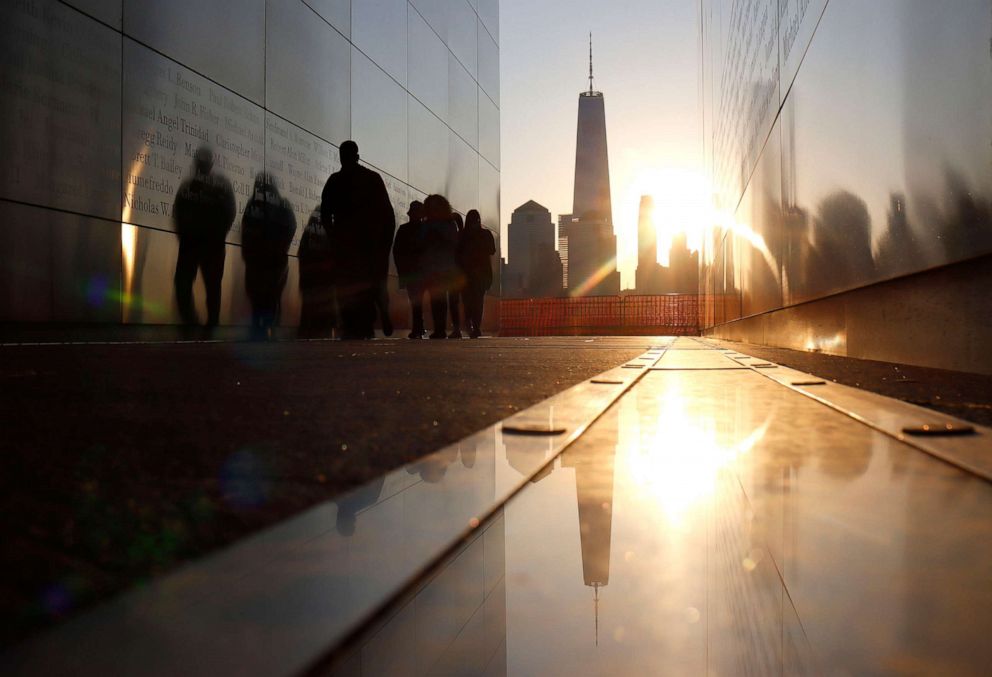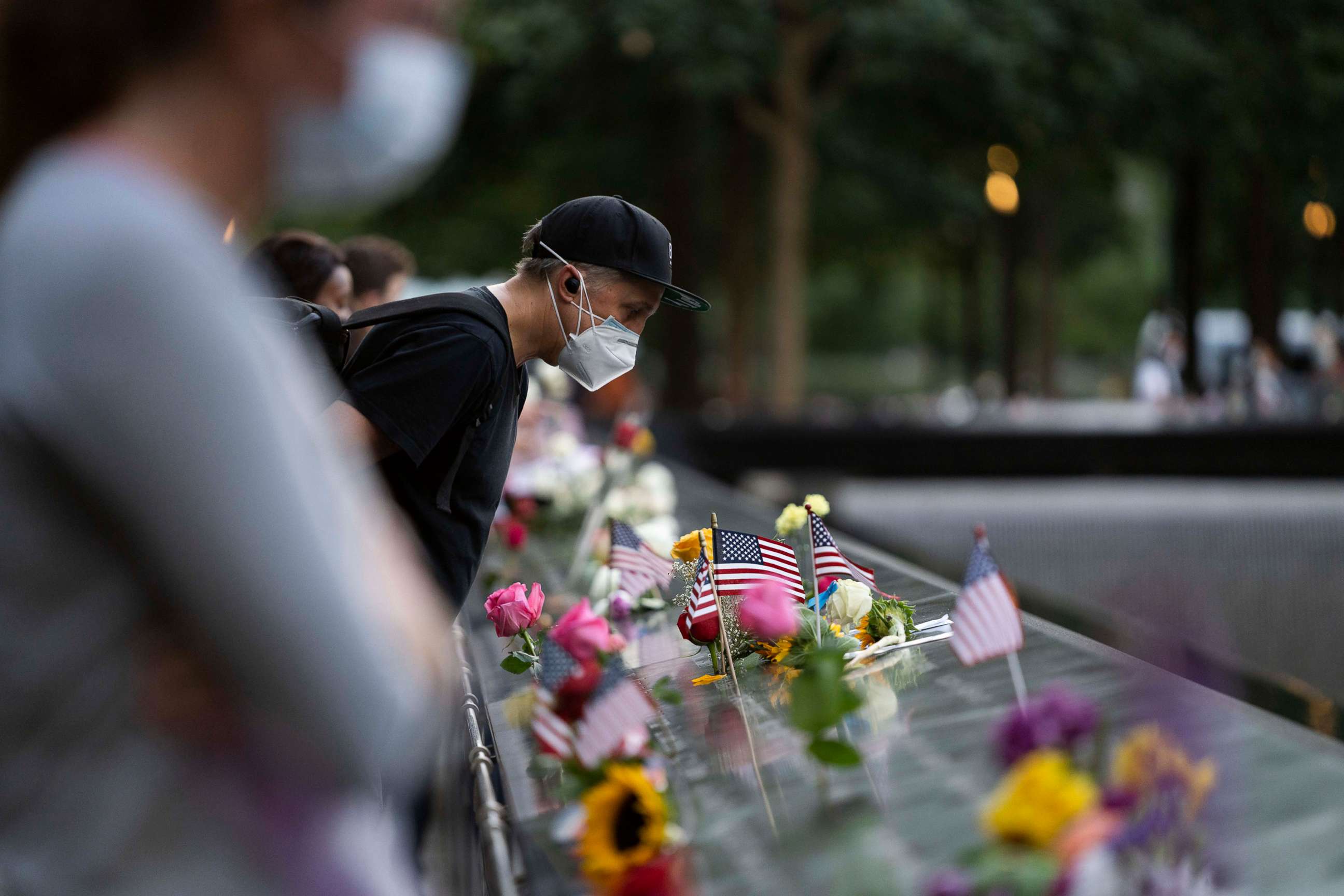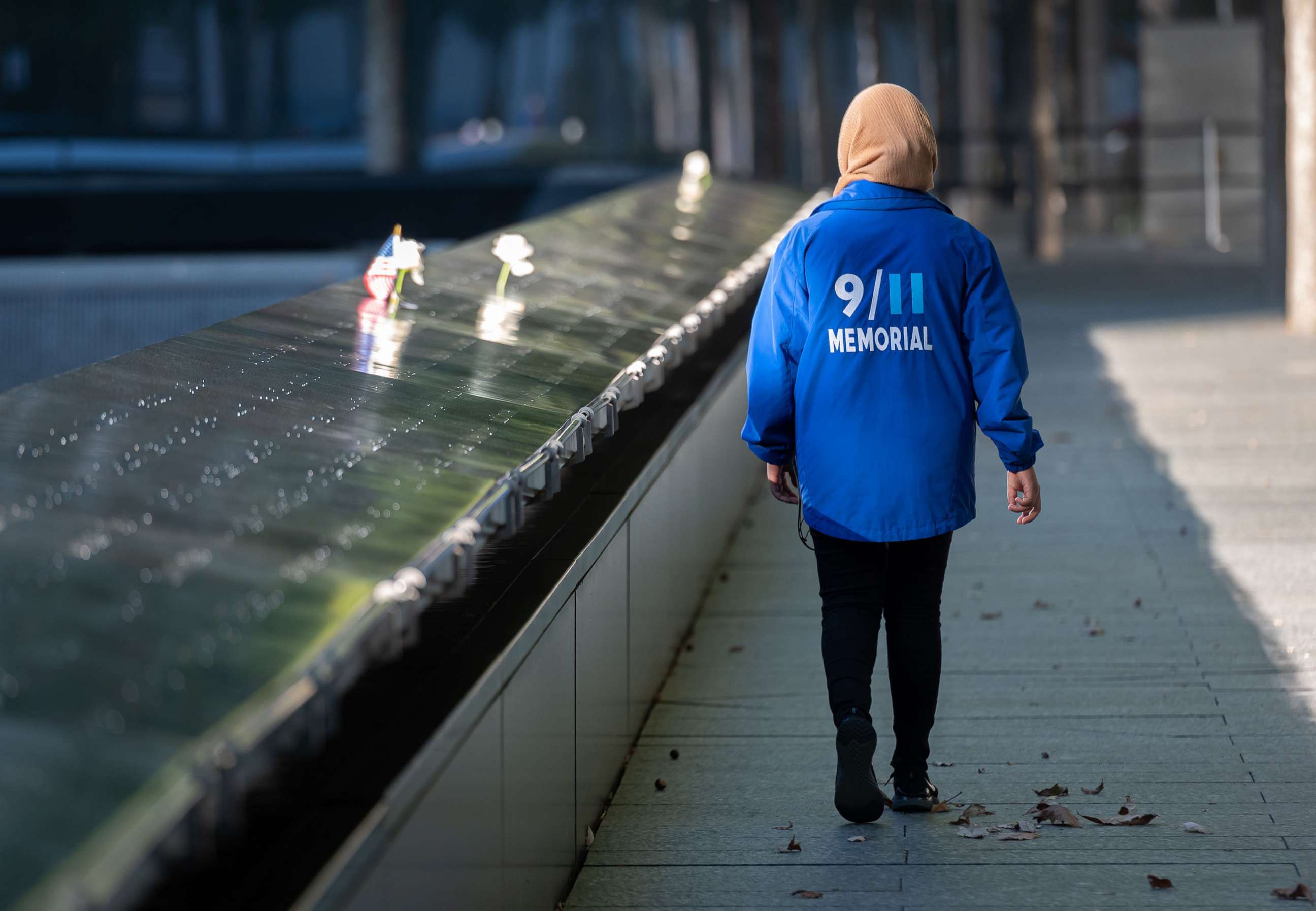9/11 anniversary, COVID-19 measures could spark terrorist attacks in the US: DHS
Law enforcement is concerned about "false narratives and conspiracy theories."
The upcoming 20th anniversary of 9/11, religious holidays and more pandemic restrictions amid a COVID-19 surge caused by the delta variant, could give rise to terrorist attacks in the U.S, the Department of Homeland Security is warning.
DHS' National Terrorism Advisory System bulletin issued on Friday, warned that threats from domestic terrorists -- individuals engaged in grievance-based violence -- and foreign terrorists are exacerbated by the pandemic, "including grievances over public health safety measures and perceived government restrictions."

The bulletin said that racially or ethnically motivated extremists will exploit the reintroduction of COVID-19 variants as a means to carry out attacks because of reimplemented pandemic restrictions.
This is the third NTAS bulletin the Department has issued since January.
The DHS also warned that because of the upcoming 9/11 anniversary foreign terrorists or people inspired by foreign terrorists might seek to carry out an attack around the anniversary.
Al-Qaeda released an issue of Inspire magazine for the first time in over four years, with the hopes of inspiring people to carry out attacks, according to the bulletin.
The bulletin also warned that domestic violent extremists have targeted houses of worship. "Historically, mass-casualty domestic violent extremist attacks linked to RMVEs have targeted houses of worship and crowded commercial facilities or gatherings," it read and that some RMVEs (racially motivated violent extremists) "advocate via online platforms for a race war and have stated that civil disorder provides opportunities to engage in violence in furtherance of ideological objectives."

Reopening of schools and other institutions, as well as religious holidays over the next few months could become "targets of opportunity for violence," the bulletin further warned.
DHS also cautioned about foreign and domestic groups as well as foreign intelligence services (but did not specify which ones) that "continue to introduce, amplify, and disseminate narratives online that promote violence, and have called for violence against elected officials, political representatives, government facilities, law enforcement, religious communities or commercial facilities, and perceived ideologically-opposed individuals."
ABC News previously reported on the Department's concern about the conspiracy theory that former President Donald Trump will be reinstated as U.S. president last Friday.
"Law enforcement have expressed concerns that the broader sharing of false narratives and conspiracy theories will gain traction in mainstream environments, resulting in individuals or small groups embracing violent tactics to achieve their desired objectives. With a diverse array of threats, DHS is concerned that increased outbreaks of violence in some locations, as well as targeted attacks against law enforcement, may strain local resources," the bulletin reads.
Some domestic violent extremists "continue to derive inspiration and obtain operational guidance through the consumption of information shared in certain online communities. This includes information regarding the use of improvised explosive devices and small arms."
The Department also warned of nation-state adversaries attempting to sow politcal discord, citing examples of Russia, China and Iran attempting to cast doubt on vaccine efficacy.

"DHS remains committed to sharing timely information with the public about the heightened threat environment in order to protect communities across our country," said Secretary of Homeland Security Alejandro N. Mayorkas in a statement on Friday. "Today's NTAS Bulletin advises the public about the heightened threat landscape we face and how DHS is working with our partners, at every level of government and in the community, to combat domestic terrorism and targeted violence in all its forms. We are committed to ensuring every initiative undertaken by DHS in response to the threat is consistent with privacy protections, civil rights and civil liberties, First Amendment-protected rights, and other applicable laws."



